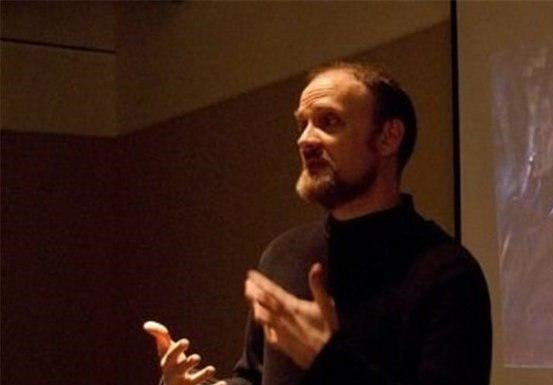Cinema can engage philosophical questions: Kevin Richards

TEHRAN - Professor Kevin Richards, chair of Liberal Arts Department at Pennsylvania Academy of the Fine Arts, tells the Tehran Times that “cinema becomes a medium through which to speculate and potentially perform philosophical questions, especially when considering a filmmaker like Cronenberg.”
He also adds that “philosophy can be used to understand works of cinema.”
Following is the text of interview:
Q: What will be your forthcoming book and which publisher may publish it?
A: My most recent publication is an essay in the volume Van Gogh among the Philosophers. The book, published by Lexington Books, is an anthology of recent essays on philosophers writing about the work of Vincent van Gogh. My essay, “Pointure mal or if the shoe doesn’t fit…,” considers Jacques Derrida’s essay “Restitutions de la vérité en pointure,” a text that considers Martin Heidegger’s essay “The Origin of the Work of Art” and the art historian Meyer Schapiro’s short response to Heidegger’s reading of van Gogh, “The Still-life as Personal Object- A Note on Heidegger and van Gogh.” I also have an essay forthcoming in another anthology to be published by Lexington Books, Cinema and Transcendence. This will be a collection of essays considering cinema through the lens of philosophy. My essay, “eXistenZ or Existenz: Transcendence in the early 21st century,” looks to David Cronenberg’s film eXistenZ.
Q: What is your main question in that book?
A: In my essay “Pointure mal,” I try to situate Derrida’s essay within the context of his larger intellectual development, pointing to how it stylistically relates to texts written proximate to it, while also looking to how it opens up questions that he subsequently explores in later works. At the same time, I pay particular attention to questions of gender and sexual identity that pass through Derrida’s considerations of Heidegger and his reading of van Gogh.
In my essay on David Cronenberg’s eXistenZ, I look to how this film, when juxtaposed with philosophical texts, helps to frame the way cinema can engage questions pertinent to philosophical discourse, especially as it relates to questions around existentialism. It also considers how cinema can be a medium used for questions pertinent to speculative philosophy.
Q: What Hypothesis will you use to answer this question?
A: In my essay in Van Gogh among the Philosophers, I rely heavily on some lesser known texts. In particular, a text on Cezanne by Schapiro, written in the same year as his essay on Heidegger and van Gogh, points to a number of contradictions within his texts, helping to support some of Derrida’s comments in regards to Schapiro’s misreading of Heidegger. I also rely on a few shorter texts by Derrida on Heidegger that help to point to ways of thinking beyond binary constructs around gender and sexuality. All of this helps to frame Derrida’s reading of Heidegger’s “The Origin of the Work of Art.”
In my essay on Cronenberg, I look to how eXistenZ relates to his earlier film Videodrome, framing my reading of these films around questions concerning selfhood and technology within the early twenty-first century. In this context, I propose that cinema becomes a medium through which to speculate and potentially perform philosophical questions, especially when considering a filmmaker like Cronenberg.
Q: What is the necessity of writing this book?
A: In regards to Van Gogh among the Philosophers, my essay and the other essays in the collection, help to continue the ongoing relation between philosophy and the visual arts. While this may be most obvious in the field of aesthetics, one of my central areas of concern, it is also important to see how major modern philosophers have considered the work of one of the most important and popular modern artists in the West.
Cinema and Transcendence helps to consider the relationships between cinema and philosophy. In the process, the essays help to show how cinema can do the work of philosophy, while also pointing to the way that philosophy can be used to understand works of cinema. In this way, the field of philosophy shows it relevance to new popular visual forms, while providing insightful readings of some well-known works of cinema, spanning the early twentieth to the early twenty-first century.
In both essays and collections, I am compelled to explore the way that the arts are an invaluable aspect to thinking about what it means to be human, in all its diverse, different, and complex forms.
Leave a Comment